
Kanjini News
21st October 2018
Wildfire coming in
We had a battle on our hands with this one. On 21st October, Pauli noticed that a fire just started next to neighbor's shed
and went over to help. While they were busy stopping it from burning
their hay bales and shed, the fire made it across neighbors field and
then jumped into our place. Luckily we had immediate notice
and called 000 and our rural fire brigade and swung into action. The
first fire-fighting units managed to back-burn along an internal road
from the lake to the houses and across the top of the bottom horse
paddocks above the houses just in time before the fire front got
to that track.
For a while it looked like we had it contained, but then when the fire
front got to the track we back-burned from, it managed to jump the
containment line due to the rather high winds blowing embers across it.
So
now we had a much larger job at hand. Luckily the call for help was
heeded by 4 urban units and at 10 rural fire units, so there
was plenty of help.
First we had to back-burn from the bottom of the gully behind the
houses towrds the south, with several units standing by to extinguish anything coming up the northern slope towards the houses.
Because the commanding officers were concerned that with the strong wind
the fire might jump emerald creek itself, they sent about twenty
fire-fighters on foot
through very rough country to back-burn for about 1.5 to 2 km along
emerald creek all the way to camp 5. The rural fire units then
back-burned along the road to camp 5 and by about 9pm with the help of
the slight increase in moisture, the decrease in wind and cooler
temperatures it finally looked like we managed to rein this wild-fire
in.
Next day the Davies creek rural brigade came out and helped us to clean
up lots of potential sources of sparks and burning trees which could
have fallen across containment lines. Inside of the burnt area, the
fire was getting quite lively again, but it remained contained. For
several days we kept a close watch and for example on day five we found
another tree which fell and was slowly burning across the containment
line. On
day seven in the gully just behind the houses a tree fell and started
burning again, luckily our tenants noticed and were quick enough to
douse it with lots of buckets of water. Even two weeks after the fire
did we find one more fallen tree still burning inside near the creek.
It was a big learning about how fast a fire can spread and move, which
grasses burn very hot and which ones seem to burn patchy, how long
after the fire we can still have potential re-ignition or sparks flying across containment lines.
While the houses and sheds were saved, we did have some major losses.
- We lost a lot of irrigation infrastructure like large solonoid valves and kilometers of pipes and sprinklers,
- a lot of lychee trees,
- years of mulch
- kilometres of fencing,
- we had to refund some campers and lost some bookings due to some of the camp sites being rather black
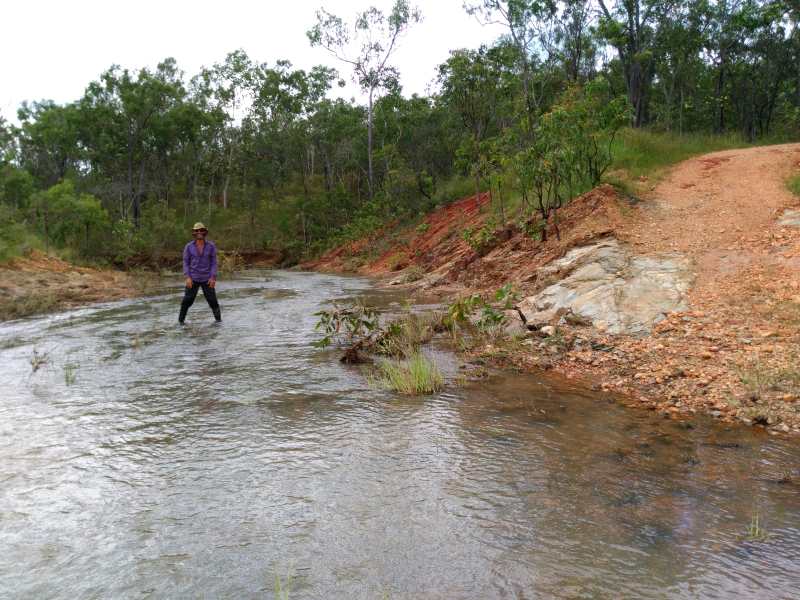  |
|
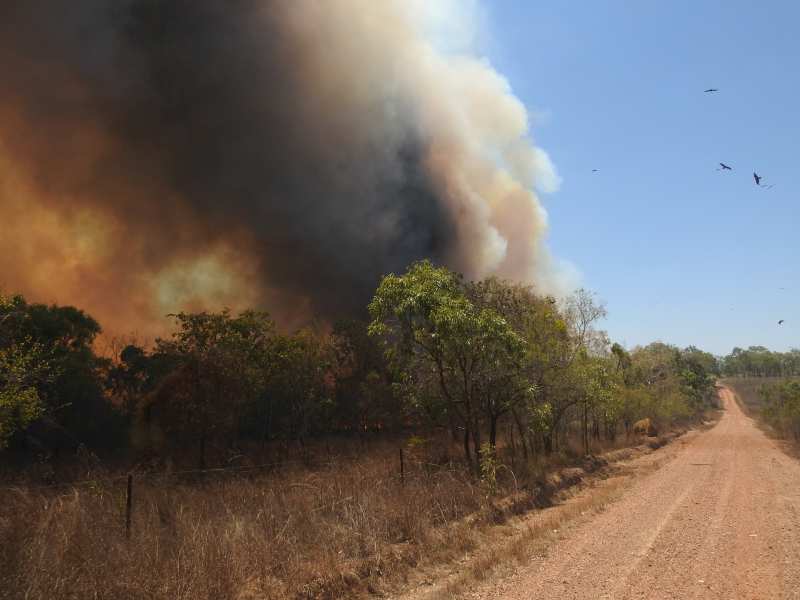 Heading along main raod towards camp 4 turnoff
|
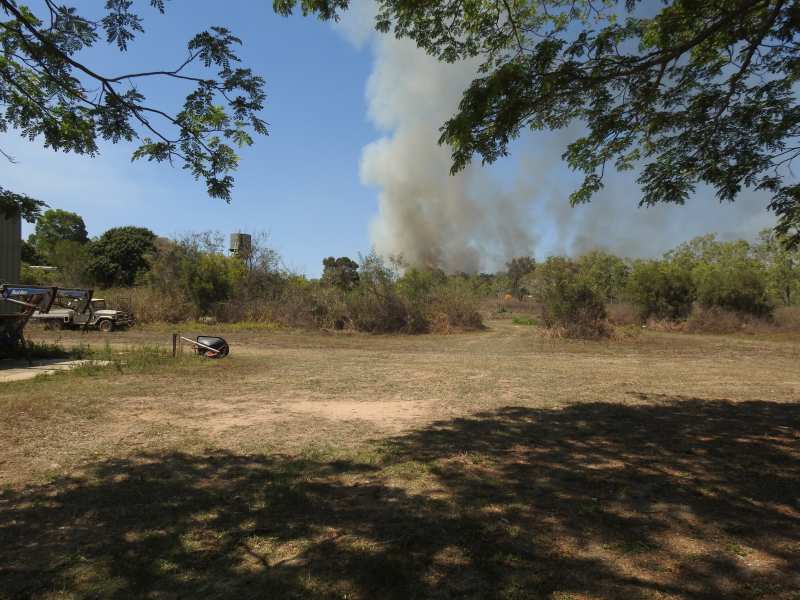
the fire-front coming down towards the houses
|
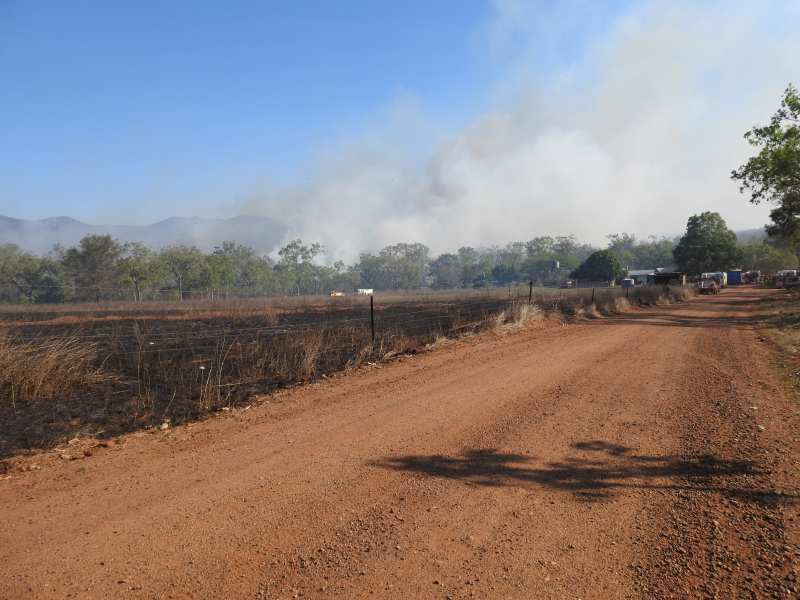 backburning behind the houses |
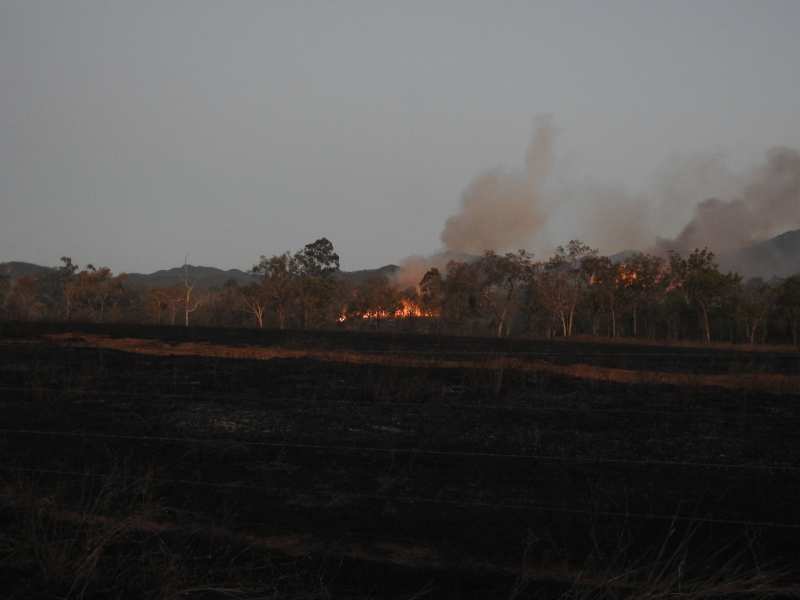 looking from in front of main house towards big dam |
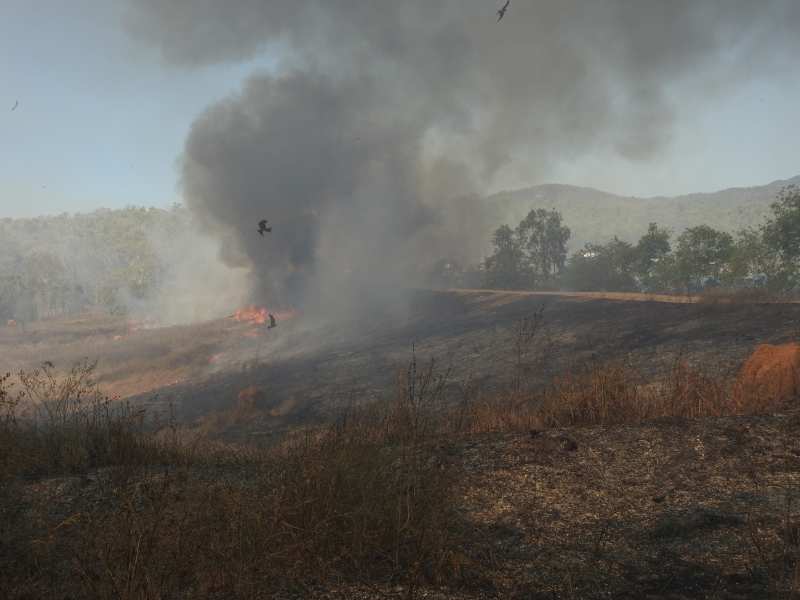
back burning down the dam wall
|
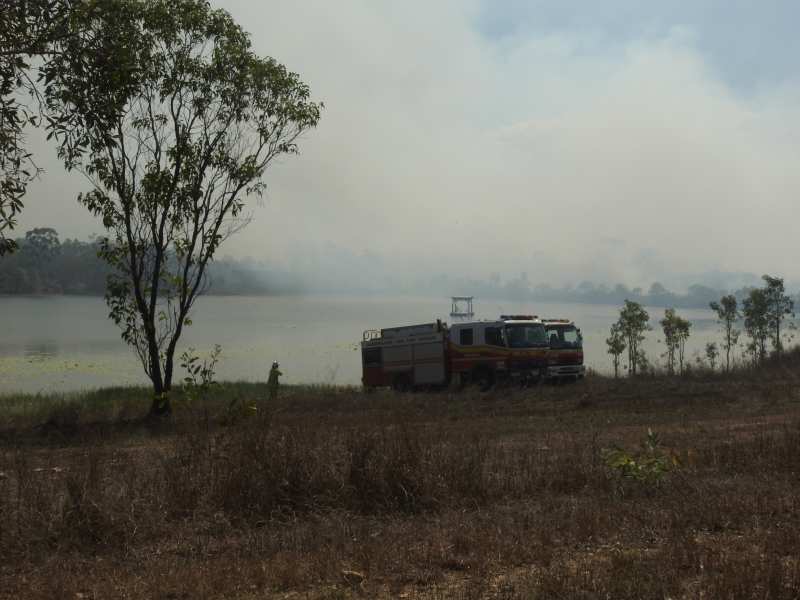 Two urban units refilling at lake side
|
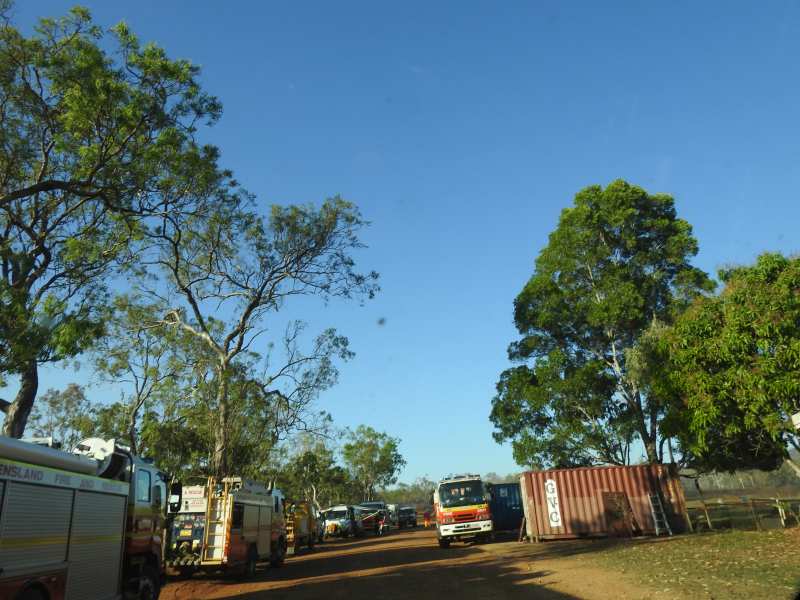
headquarter in front of main house - rallying the troops
|
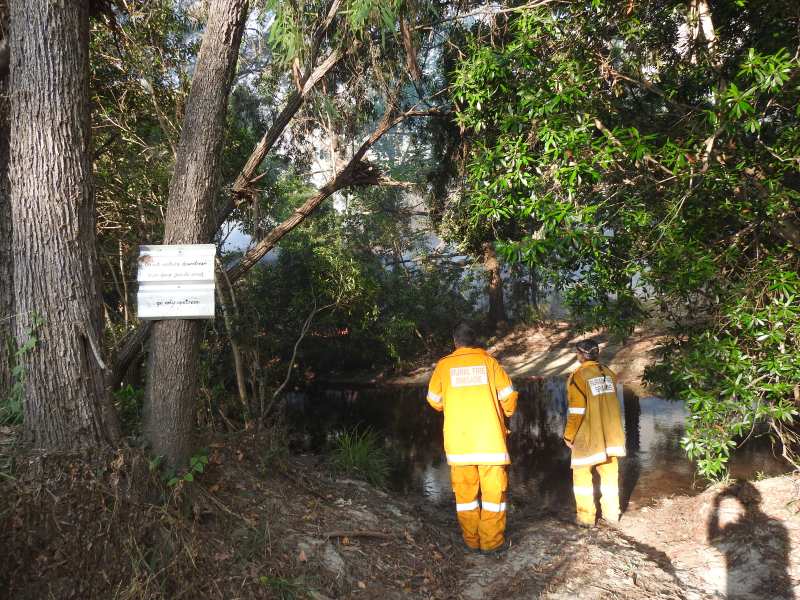
backburning along the creek
|
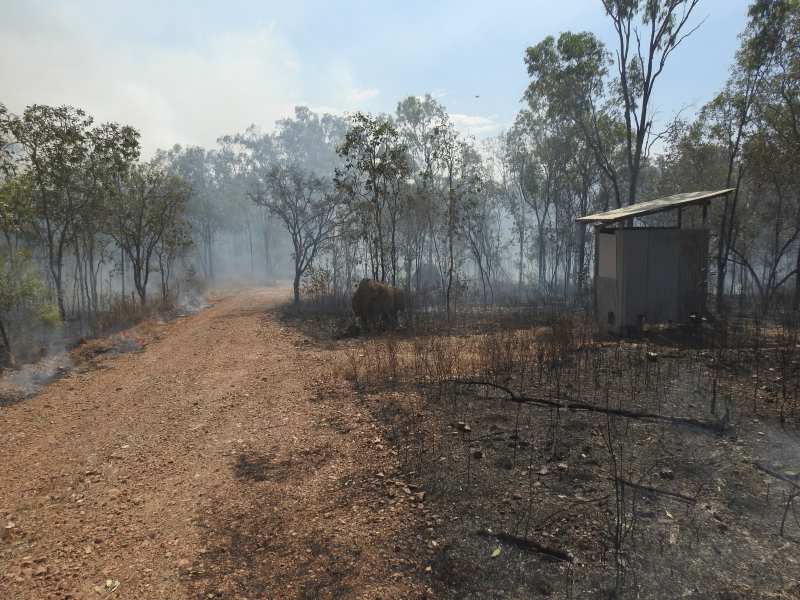
the surroundings of camp 4 got burnt, but the toilet survived!
|
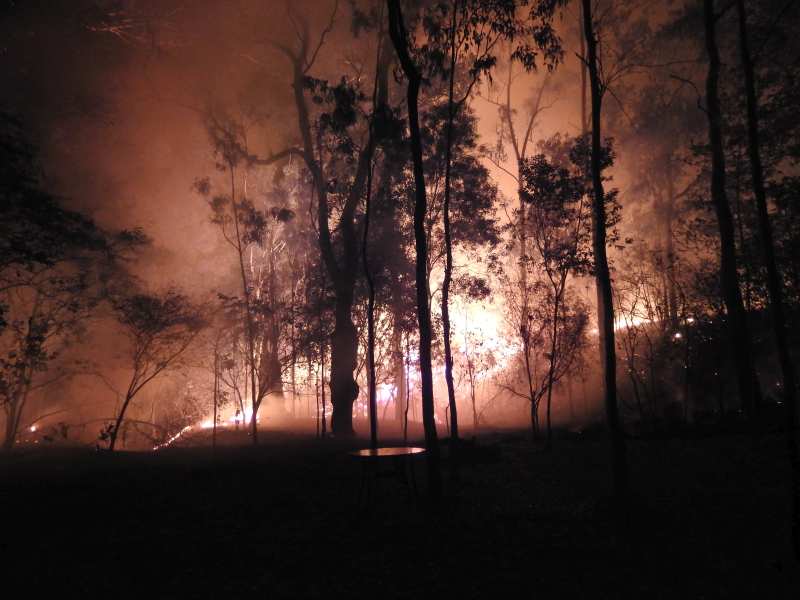
backburning from camp 5 |
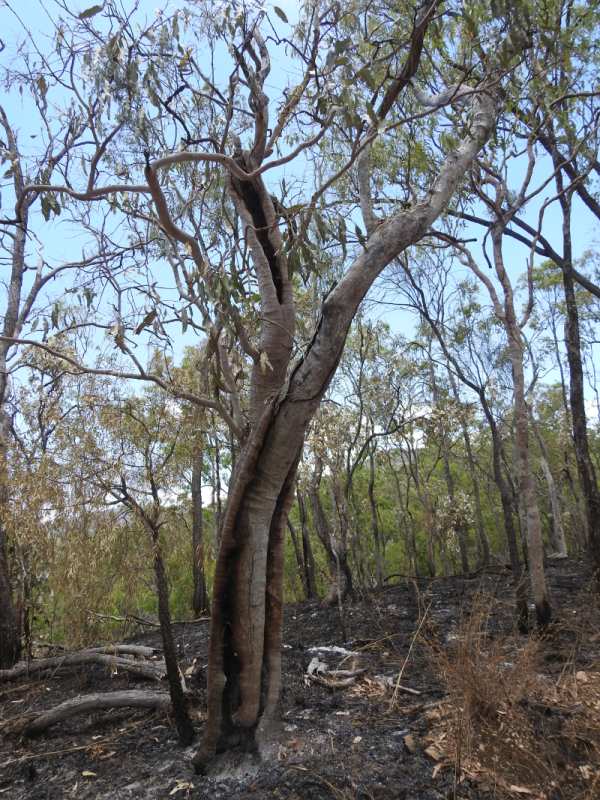
|
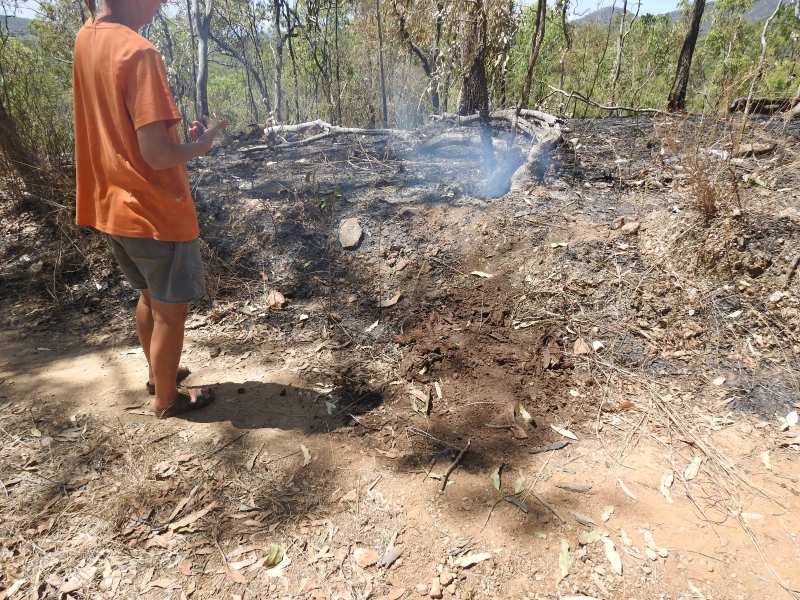
here that tree's stump is still smouldering after
the tree being cut down and removed. It could have fallen across the
track and started the fire again on the other side of the containment
line
|
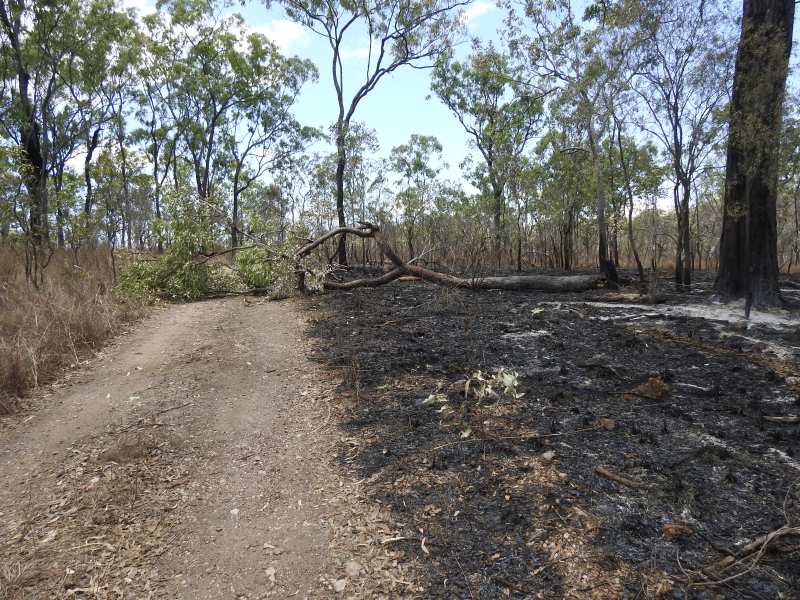
this tree had already fallen across the containment line
|
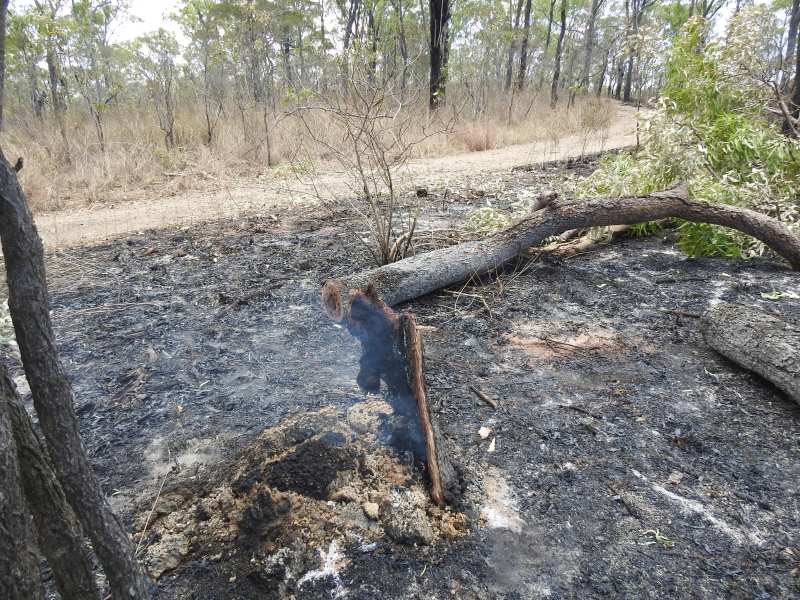
and was burning towards it....
Its important to be vigilant and patrol the containment lines |
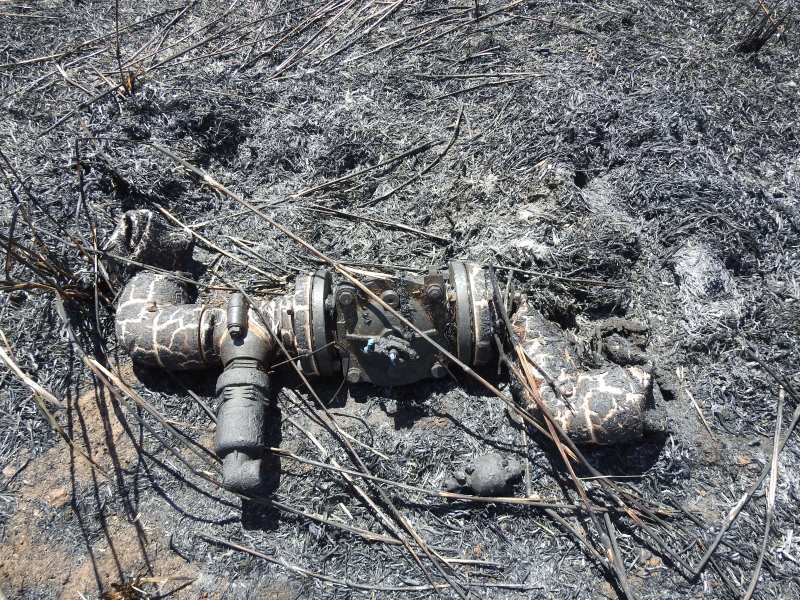
these 4" solonoid valves and other fittings are not cheap...
|
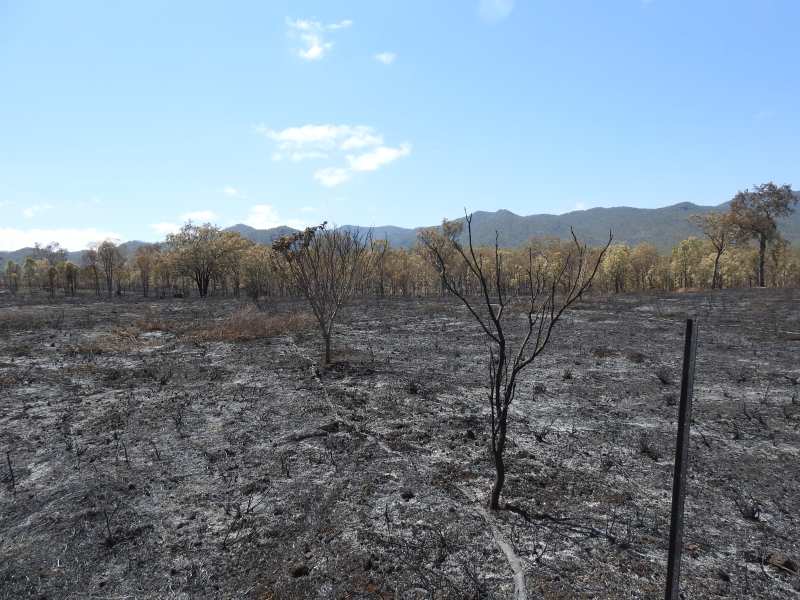
these lychees looks rather sad and so does the water pipe and sprinklers
|
Back to News
© 2009- Kanjini.org